Japan has a unique and vibrant drinking culture. I’ve had the experience of drinking beer at a baseball game in Japan, sipping on sake in an Izakaya and enjoying some plum wine from a train station vending machine. Those are just a few of my most memorable most drinking in Japan.
Imagine savoring a delicate glass of sake during a serene tea ceremony or clinking glasses with friends at a lively izakaya in the heart of Tokyo. Alcohol in Japan is used to foster social bonds and celebrates life’s moments. Whether you’re a resident, tourist, or business owner, understanding the legal drinking age and age restrictions in Japan is essential. This engaging guide will walk you through Japan’s alcohol laws, shedding light on their cultural significance and practical implications during your travels.
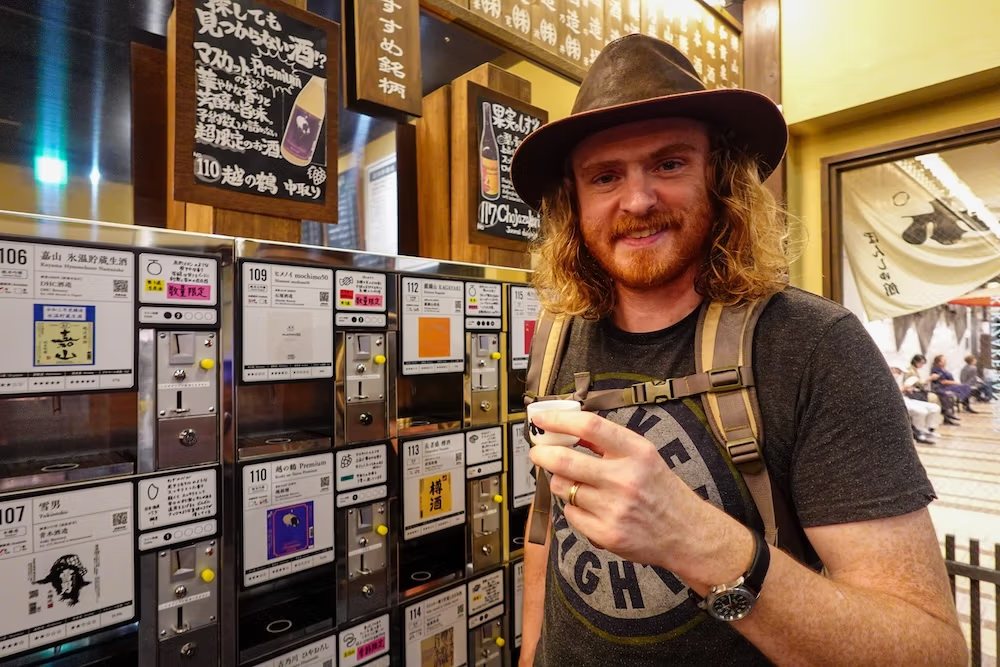
Japan’s Vibrant Drinking Culture
To understand Japan’s relationship with alcohol requires rewinding the clock. From the ceremonial sakazuki used in Shinto rituals to the bustling beer gardens that spring up during summer festivals, alcohol plays a multifaceted role in Japanese life. Sake, Japan’s cherished rice wine, is often seen as a symbol of hospitality and celebration, shared during significant life events and community gatherings.
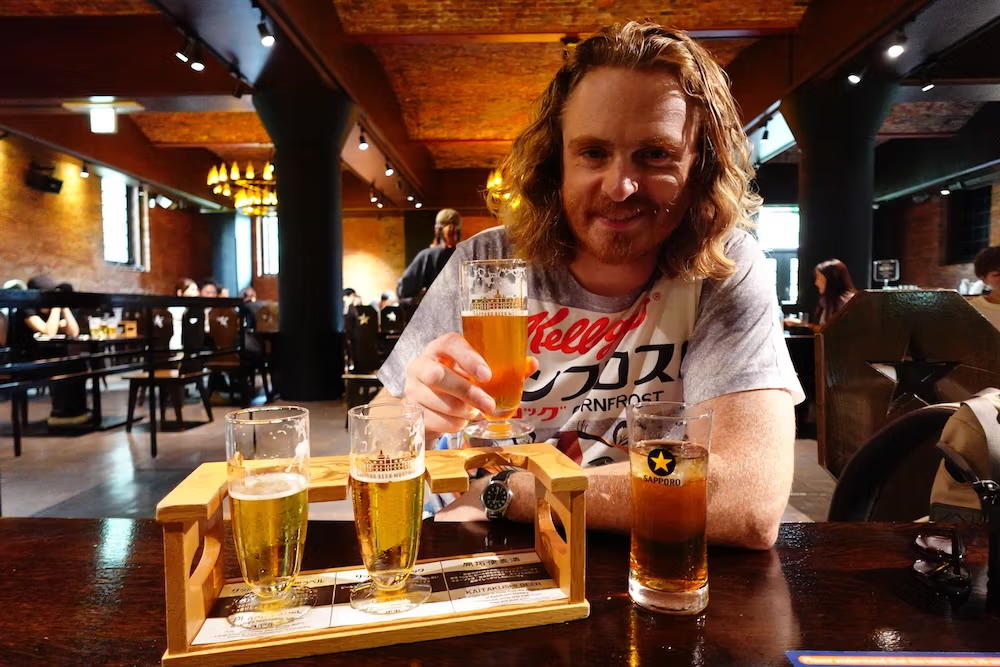
- Business Culture: After-work drinks, known as nomikai, are essential for team bonding and fostering professional relationships.
- Social Gatherings: Celebrations, whether family milestones or local festivals, often feature communal drinking.
- Cultural Ceremonies: Traditional events incorporate alcohol as a symbolic element, representing unity and prosperity.
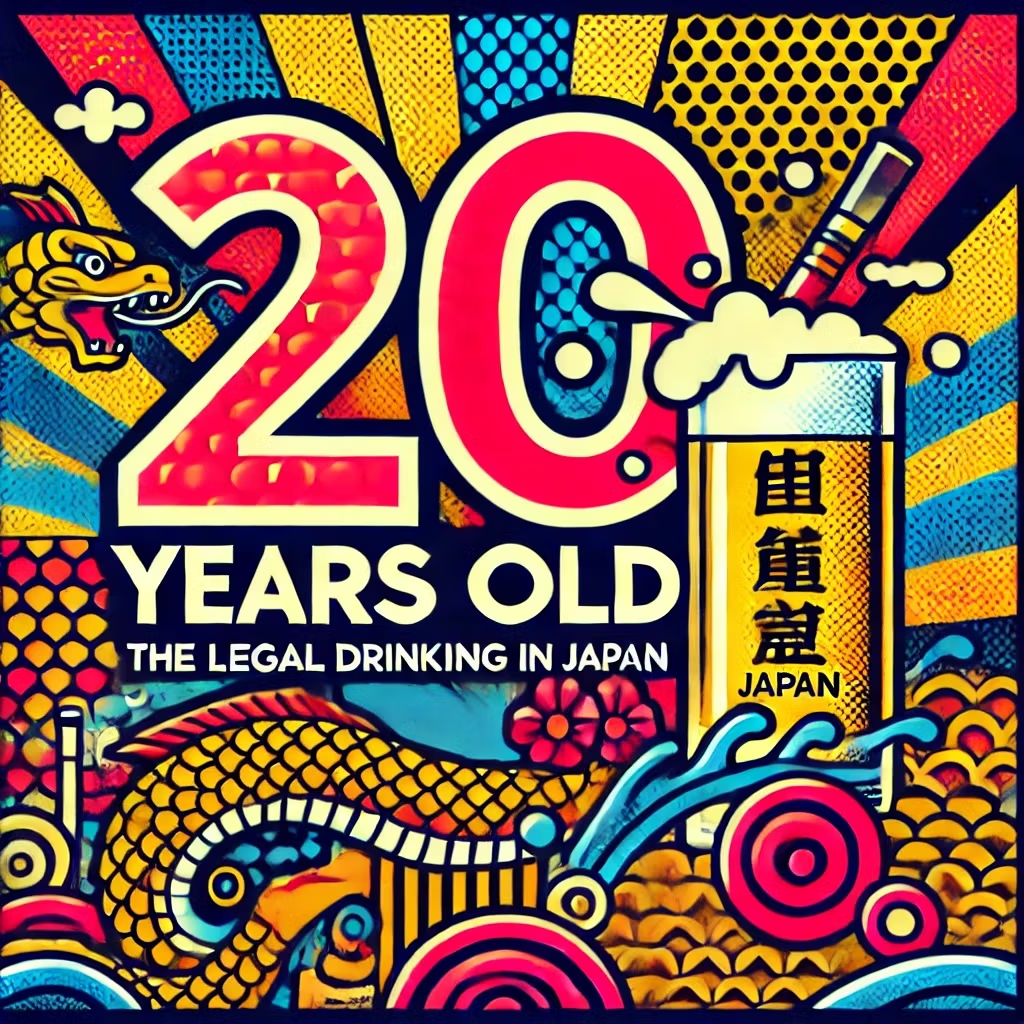
Legal Drinking Age in Japan
Official Legal Drinking Age
In Japan, the legal drinking age is 20 years old. This age threshold is consistent across all forms of alcoholic beverages, including beer, wine, sake, and spirits. The law is strictly enforced, and establishments serving alcohol are mandated to verify the age of their patrons diligently.
Imagine walking into a traditional izakaya. Before receiving your first glass of sake, the staff will politely request to see your ID—be it a passport, driver’s license, or resident card. This meticulous verification process ensures that only those of legal age can partake in alcohol consumption, maintaining the integrity of Japan’s alcohol regulations.
- Uniform Age Limit: Applies consistently to all types of alcohol, simplifying enforcement.
- Strict Enforcement: Regular checks and severe penalties deter underage drinking.
- Identification Requirements: Valid government-issued ID is required for age verification.
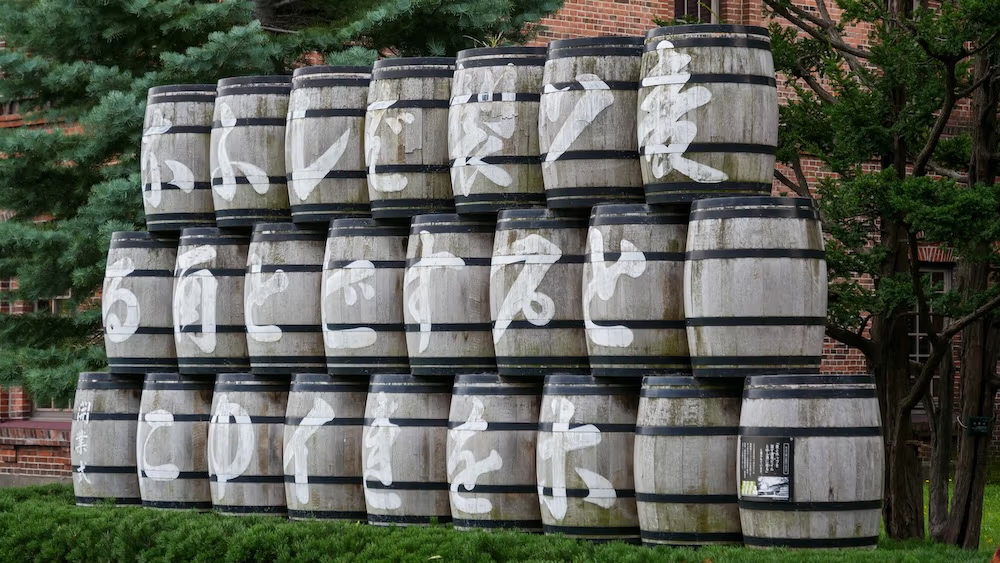
Comparison with Other Countries
Japan’s drinking age stands at 20, which places it in a unique position when compared to its neighbors and Western nations. Here’s how Japan’s drinking age stacks up against other countries:
| Country | Legal Drinking Age |
|---|---|
| Japan | 20 years old |
| South Korea | 19 years old (based on Korean age system, equivalent to 20 internationally) |
| China | 18 years old |
| Taiwan | 18 years old |
| Thailand | 20 years old |
| United States | 21 years old |
| United Kingdom | 18 years old |
| Germany | 16 years old for beer and wine; 18 years old for spirits |
| Australia | 18 years old |
| Canada | 18 or 19 years old (varies by province) |
Insights:
- Regional Consistency: Most neighboring countries set the legal drinking age between 18 and 20, reflecting shared cultural values regarding maturity.
- Higher Age Limits in Western Countries: The United States, with a drinking age of 21, stands out as having one of the highest legal drinking ages.
- Lower Age Limits in Europe: Countries like Germany and the UK have lower drinking ages, reflecting cultural norms that integrate alcohol into daily life at younger ages.
Historical Perspective
Japan’s legal drinking age has remained stable at 20 years old for decades.
Historical Context:
- Post-War Era: The current legal drinking age was established during the post-war period to regulate alcohol consumption and promote public health.
- Cultural Emphasis: The stable age reflects Japan’s cultural emphasis on maturity, responsibility, and social harmony.
- Recent Amendments: There have been minimal changes, indicating societal satisfaction with the existing regulations and a desire to maintain traditional values.

Age Restrictions and Regulations
Enforcement of Age Restrictions
Japan takes the enforcement of age restrictions seriously, ensuring that the laws are upheld across various settings. Here’s how age restrictions are enforced in different environments:
Enforcement in Different Settings:
- Bars and Nightclubs: Strict age verification at entry points, often with bouncers trained to spot fake IDs.
- Restaurants and Izakayas: Servers are required to check IDs before serving alcohol, ensuring compliance.
- Convenience Stores and Supermarkets: Retailers must verify the age of customers purchasing alcohol, often with a simple ID check at the counter.
- Events and Festivals: Temporary checks may be set up during large gatherings to prevent underage drinking.
Acceptable Identification for Age Verification
When you’re 20 years old in Japan, it’s essential to have the right identification to verify your age when purchasing or consuming alcohol. Here’s what you need to know about acceptable forms of ID:
Types of IDs Recognized:
- Passport: The most commonly accepted form of ID for international travelers.
- Driver’s License: A standard ID for residents and can be used as proof of age.
- Resident Card: For foreign residents, the resident card serves as a valid ID.
- My Number Card: Some establishments may accept Japan’s My Number Card as a form of identification.
Tips for Ensuring Your ID is Accepted:
- Validity: Ensure your ID is current and not expired.
- Clarity: Present IDs that are clear and undamaged, making it easier for staff to verify details.
- Language: While many establishments understand international IDs, carrying a translation or having important information accessible can be helpful.
- Backup: If you’re traveling, consider having multiple forms of ID on hand in case one isn’t accepted.
Penalties for Non-Compliance
Violating Japan’s alcohol laws can have serious consequences, not just for individuals but also for establishments. Here’s a breakdown of the potential penalties:
Consequences for Establishments:
- Fines: Establishments caught serving alcohol to underage individuals can face substantial fines.
- License Revocation: Repeated violations may lead to the revocation of the establishment’s license to serve alcohol.
- Criminal Charges: In severe cases, business owners or responsible personnel may face criminal charges.
Potential Repercussions for Travelers:
- Fines and Detentions: Tourists caught violating age restrictions may be fined or, in extreme cases, detained.
- Impact on Travel Plans: Legal issues can disrupt your travel plans, leading to unwanted complications.
- Reputation Damage: Being involved in legal troubles can tarnish your personal reputation and cause embarrassment.
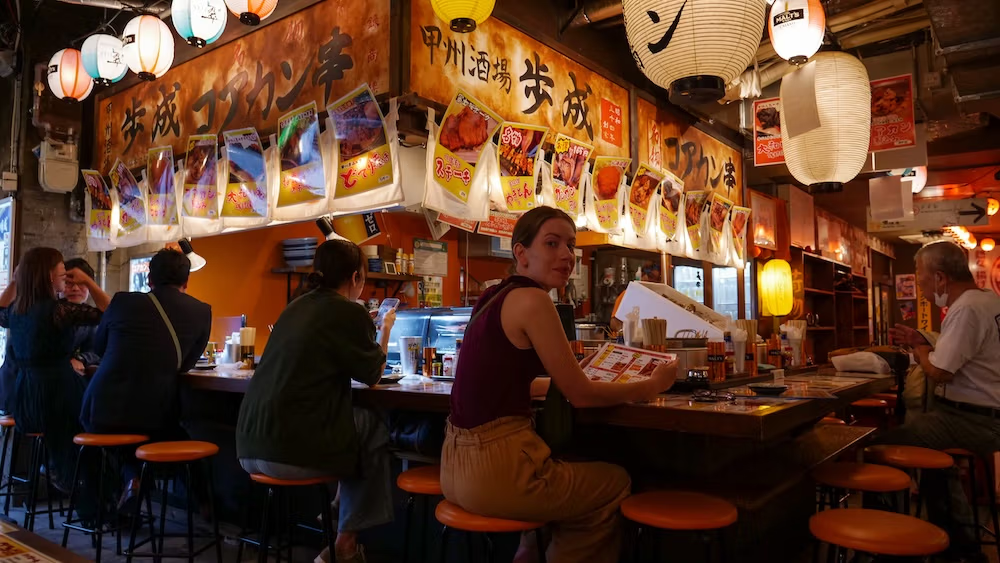
Cultural Aspects of Drinking in Japan
Social Norms and Etiquette
In Japan, alcohol is more than just a drink—it’s a social tool that helps build bonds and foster relationships. Understanding the social norms and etiquette around drinking can significantly enhance your experience.
Building Social Bonds:
- Nomikai (After-Work Drinks): A common practice where colleagues gather to unwind, share stories, and strengthen professional relationships. Participating in nomikai can be a great way to integrate into Japanese work culture.
- Celebratory Drinking: Birthdays, weddings, and other celebrations often involve communal drinking, emphasizing unity and shared joy.
Proper Drinking Etiquette:
- Pouring Drinks: It’s customary to pour drinks for others rather than filling your own glass. When someone pours for you, reciprocate by pouring for them.
- Clinking Glasses: The traditional clink involves lightly tapping glasses while making eye contact, symbolizing respect and camaraderie.
- Respecting the Host: Show appreciation to the host by waiting for them to make the first toast and following their lead during the gathering.
Common Practices:
- No Drinking Alone: While it’s possible to enjoy a drink alone, communal drinking is highly valued in Japanese culture.
- Silent Drinking: In formal settings, drinking might be more subdued and respectful, focusing on the collective experience rather than individual enjoyment.
- Drinking for Others: Offering a drink to someone is seen as a gesture of goodwill and hospitality.
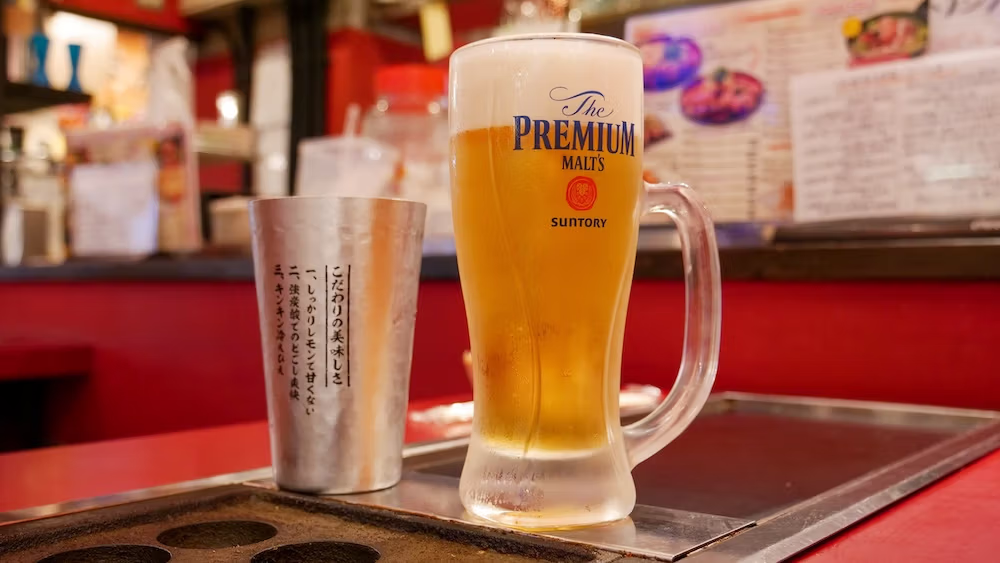
Popular Drinking Venues for Travelers
Japan offers a plethora of drinking venues that cater to diverse tastes and preferences. Whether you’re seeking a traditional experience or a modern nightlife scene, there’s something for everyone.
Izakayas:
- Description: Casual pubs that serve a variety of alcoholic beverages and a wide range of small dishes, known as izakaya.
- Traveler-Friendly: Many izakayas are welcoming to tourists, offering English menus and staff who can communicate in basic English.
- Recommendations: Popular chains like Torikizoku and local favorites in different regions.
Bars:
- Variety: From cozy, intimate bars to vibrant cocktail lounges, Japan’s bar scene is diverse.
- Specialty Bars: Sake bars, whiskey bars, and craft beer pubs cater to specific tastes.
- Tokyo Highlights: Areas like Shinjuku, Shibuya, and Roppongi are renowned for their bustling bar scenes.
Karaoke Rooms:
- Unique Experience: Combine singing with drinking for a fun and interactive night out.
- Accessibility: Available throughout the country, often in multi-story buildings with private rooms.
- Group Activity: Ideal for groups of friends or colleagues looking to enjoy a lively evening.
Beer Gardens:
- Seasonal Popularity: Primarily during spring and summer, offering outdoor drinking spaces with communal seating.
- Festive Atmosphere: Perfect for enjoying the weather, music, and a wide selection of beers and food.
High-End Restaurants and Hotels:
- Exclusive Venues: Upscale dining establishments and luxury hotel bars offer premium alcoholic beverages and sophisticated settings.
- Fine Dining: Ideal for special occasions and experiencing high-quality Japanese craftsmanship in drinks.
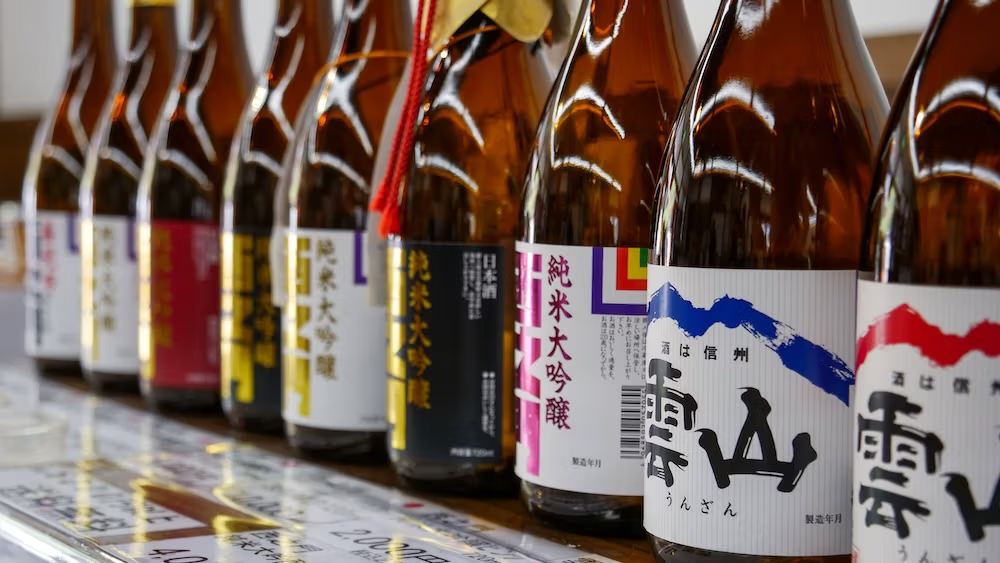
Special Drinking Occasions
Japan’s rich cultural heritage includes numerous ceremonies and festivals where alcohol plays a significant role. Participating in these special occasions can provide a deeper understanding of Japan’s traditions and social practices.
Traditional Ceremonies:
- Shinto Rituals: During Shinto ceremonies, sake is often used as an offering to deities. Participants may share sake in a ritualistic manner, symbolizing unity and communal harmony.
- Tea Ceremonies: While primarily focused on tea, some tea ceremonies incorporate sake to signify hospitality and completeness.
Seasonal Festivals:
- Matsuri (Festivals): Seasonal festivals, such as the Cherry Blossom Festival (Hanami) in spring or the Gion Matsuri in summer, often feature communal drinking as part of the celebrations.
- Obon: During the Obon festival, families gather to honor their ancestors, and alcohol may be consumed as part of the communal rites.
Modern Celebrations:
- New Year (Oshogatsu): The New Year celebration involves special sake ceremonies and gatherings with family and friends.
- Local Events: Many localities host their own unique drinking events, blending traditional practices with contemporary festivities.
Cultural Participation:
- Engaging in Ceremonies: Travelers can participate in or observe these ceremonies to gain a firsthand experience of Japan’s cultural heritage.
- Understanding Symbolism: Recognizing the symbolic meanings behind alcohol consumption in these contexts enhances the appreciation of Japanese traditions.
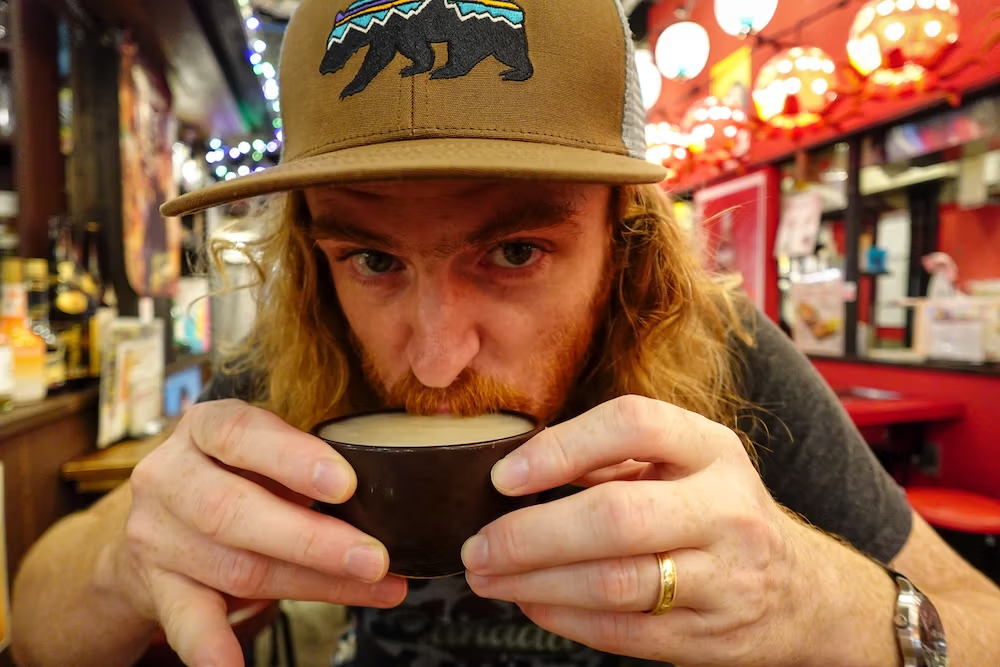
Practical Tips for Travelers
Navigating Age Verification
Navigating age verification in Japan requires a bit of preparation, especially for international travelers. Here’s how to present your ID confidently and what to do if your ID is questioned or not accepted.
How to Present Your ID Confidently:
- Keep It Accessible: Store your ID in an easily reachable place, like a wallet or a designated pocket.
- Be Polite and Respectful: When asked for your ID, present it promptly and with a smile. Politeness goes a long way in Japanese culture.
- Hold It Steady: Ensure your ID is held steadily and clearly visible to the staff member conducting the check.
What to Do If Your ID is Questioned or Not Accepted:
- Stay Calm: If your ID is questioned, remain calm and composed. Avoid showing frustration or anger.
- Provide Additional Information: If possible, offer additional forms of ID or information to verify your age.
- Understand the Issue: Sometimes, language barriers or unfamiliarity with certain types of IDs can cause confusion. Politely ask if there’s a specific issue and try to address it.
- Seek Assistance: If you’re in a larger establishment, ask if a manager or someone who speaks your language can assist you.
Tips:
- Carry Multiple IDs: If you have more than one form of ID, keep them handy in case one is not accepted.
- Know Your Rights: Familiarize yourself with your rights and responsibilities regarding age verification to navigate any disputes smoothly.
- Digital Copies: While physical IDs are required, having digital copies stored securely can be useful for reference or emergencies.
Choosing the Right Venues
Choosing the right venues to enjoy alcohol in Japan can enhance your experience and ensure you remain compliant with local laws. Here are some tips for selecting safe and reputable places to drink.
Safe and Reputable Places to Enjoy Alcohol:
- Established Izakayas: Stick to well-known izakayas or those recommended by locals or trusted travel guides.
- Licensed Bars and Restaurants: Ensure that the venue is licensed to serve alcohol, which is a sign of compliance with regulations.
- Popular Tourist Areas: Areas like Shinjuku, Shibuya, and Roppongi in Tokyo are home to many reputable drinking establishments catering to tourists.
- Hotel Bars: Many hotels offer high-quality bars with experienced staff who are accustomed to serving international guests.
Avoiding Tourist Traps:
- Research Before You Go: Use reputable sources like travel blogs, guidebooks, or recommendations from locals to find quality venues.
- Read Reviews: Check online reviews on platforms like TripAdvisor or Yelp to gauge the quality and reliability of a venue.
- Be Cautious of Extremely Cheap Drinks: While Japan offers affordable drinking options, extremely low prices might indicate poor quality or dubious practices.
Responsible Drinking Practices
While Japan offers an exciting and immersive drinking culture, it’s essential to practice responsible drinking to ensure a safe and enjoyable experience.
Staying Safe While Enjoying Japan’s Nightlife:
- Know Your Limits: Be aware of your alcohol tolerance and pace yourself to avoid overindulgence.
- Stay Hydrated: Drink water alongside alcoholic beverages to stay hydrated and reduce the effects of alcohol.
- Eat Before and While Drinking: Consuming food can help slow the absorption of alcohol, making it easier to manage your intake.
- Plan Your Transportation: Ensure you have a safe way to get back to your accommodation, whether by public transport, taxi, or designated driver.
Understanding Your Limits and Cultural Expectations:
- Respect Local Norms: Japanese culture emphasizes moderation and respect, so avoid excessive drinking that could lead to disruptive behavior.
- Be Mindful of Public Behavior: Public intoxication is generally frowned upon, so aim to keep your drinking within reasonable limits.
- Take Care of Your Belongings: Japan is known for its safety, but always keep an eye on your personal items, especially in crowded venues.
Tips:
- Set a Budget: Decide beforehand how much you’re willing to spend on drinks to avoid overspending.
- Watch Your Drink: To prevent unwanted additions or spiking, keep an eye on your drink at all times.
- Be Polite and Considerate: Engage in respectful interactions with others, following the social etiquette of the venues you visit.

Dealing with Language Barriers
Language barriers can pose challenges when navigating Japan’s alcohol laws, especially during age verification processes. Here’s how to communicate effectively and handle common phrases related to alcohol consumption.
Communicating Age Verification in Japanese:
- Basic Phrases to Know:
- “I am 20 years old.” – Watashi wa nijussai desu. (私は二十歳です。)
- “Here is my ID.” – Kore wa watashi no ID desu. (これは私のIDです。)
- “Can I have the menu in English?” – Eigo no menyū o moraemasu ka? (英語のメニューをもらえますか?)
Common Phrases and Tips for Non-Japanese Speakers:
- Asking for Assistance: If you’re unsure about the process, ask for help by saying, “Excuse me, do you speak English?” – Sumimasen, eigo hanasemasu ka? (すみません、英語話せますか?)
- Understanding Responses: Be prepared for simple responses or gestures if there’s a language barrier. Pointing to your ID or using universal symbols can aid communication.
- Using Translation Apps: Utilize apps like Google Translate to facilitate conversations and ensure accurate communication during critical interactions.
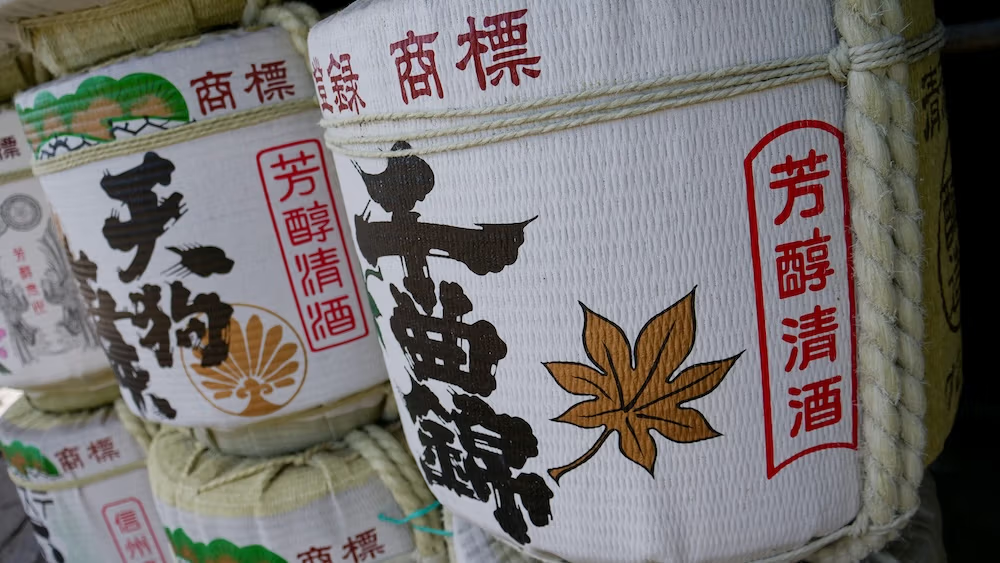
Enhancing Your Travel Experience Through Alcohol
Participating in Local Drinking Traditions
Engaging in Japan’s local drinking traditions can provide a deeper understanding of its culture and create memorable experiences during your travels.
Engaging in Authentic Experiences:
- Sake Tasting Sessions: Participate in sake tasting events to explore the diverse flavors and brewing techniques of Japan’s national drink. Many sake breweries offer tours and tasting sessions, allowing you to learn about the production process and sample different varieties.
- Beer Gardens (Biā Gāden): Visit seasonal beer gardens, especially during the summer, to enjoy outdoor drinking with beautiful views and a lively atmosphere. These gatherings are perfect for socializing and experiencing the local festive spirit.
- Shochu Tastings: Explore shochu, a traditional Japanese spirit, by visiting specialized shochu bars or attending tastings that highlight regional variations and unique brewing methods.
Exploring Japan’s Diverse Alcoholic Offerings
Japan boasts a diverse array of alcoholic beverages, each with its own unique characteristics and cultural significance. Exploring these offerings can add depth to your travel experience.
Overview of Popular Japanese Beverages:
- Sake (Nihonshu): Japan’s national rice wine, available in various grades and flavors, from sweet and fruity to dry and robust. Sake is often enjoyed warm or chilled, depending on its type and personal preference.
- Shochu: A distilled spirit typically made from barley, sweet potatoes, or rice. Shochu is versatile, enjoyed neat, on the rocks, or mixed in cocktails.
- Beer: Japan’s beer market is dominated by major brands like Asahi, Kirin, and Sapporo, but craft beer is also thriving, offering a wide range of innovative and flavorful options.
- Umeshu: A sweet and fruity liqueur made from ume fruits (Japanese plums), offering a refreshing and easy-to-drink option perfect for casual sipping.
- Whiskey: Japanese whiskey has gained international acclaim, known for its smoothness and refined flavors. Distilleries like Suntory and Nikka produce award-winning varieties.
Recommendations for Trying Unique and Regional Drinks:
- Regional Specialties: Each region in Japan has its own specialty drinks. For example, Hiroshima is known for its shochu, while Hokkaido offers exceptional craft beers.
- Local Breweries and Distilleries: Visit local breweries and distilleries to sample fresh, region-specific beverages and learn about their production processes.
- Sake Breweries: Take tours of sake breweries to gain insight into the brewing process and enjoy tastings directly from the source.
- Craft Beer Bars: Explore craft beer bars that feature a rotating selection of local and international brews, allowing you to discover new favorites.
- Umeshu Tastings: Sample umeshu at specialty bars or during festive events, appreciating its sweet and smooth profile.
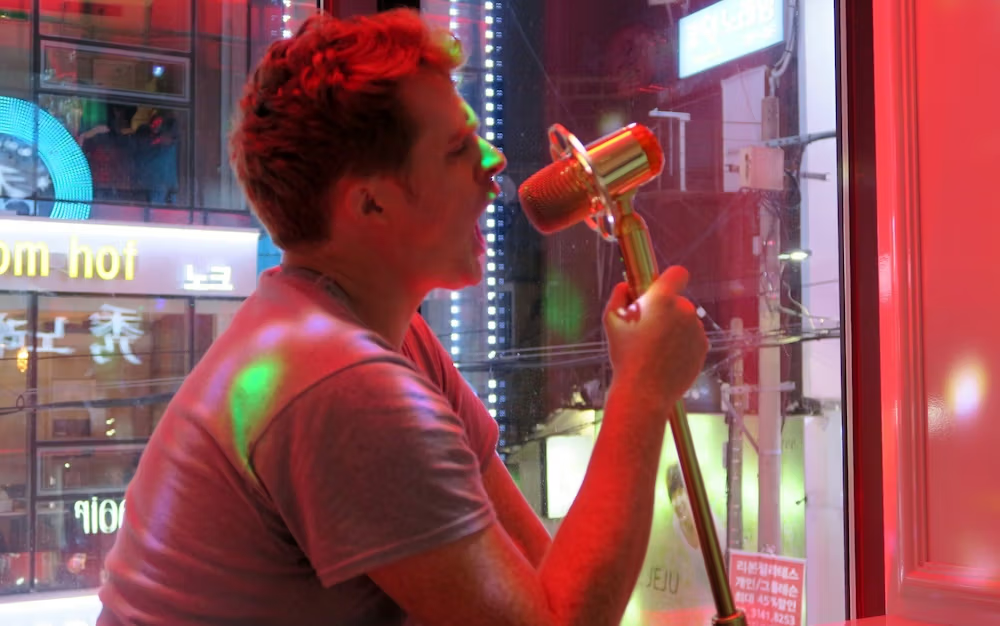
Planning Your Nights Out in Japan (Without Breaking Any Rules)
Once you know the legal drinking age is 20, the next step is figuring out how to actually enjoy Japan’s drinking culture in a way that feels fun, local, and stress-free. The good news? Japan is one of the easiest countries in the world for visitors to navigate a night out, as long as you understand a few basics about where to stay, how to budget, and how to get home at the end of the night.
Choosing a Neighbourhood for Nightlife
If drinking and nightlife are a big part of your trip, it really helps to base yourself near one of the main hubs. That doesn’t mean you have to be surrounded by neon chaos 24/7, but you want to be close enough that you’re not dealing with hour-long commutes after last call.
Major Nightlife Areas to Consider
| City | Area / Neighbourhood | Vibe in the Evening | Best For |
|---|---|---|---|
| Tokyo | Shinjuku (incl. Kabukicho, Golden Gai) | Neon overload, tiny bars, rowdy streets | Bar hopping, “only in Japan” energy |
| Tokyo | Shibuya | Young, trendy, busy but slightly less gritty | First-time visitors, cocktails, late food |
| Tokyo | Asakusa / Ueno | More low-key, old-school Tokyo | Quieter izakaya nights, early sleepers |
| Osaka | Namba / Dotonbori | Street food + drinking, loud and colourful | Eating + drinking in one place |
| Osaka | Umeda | Office-worker nomikai, more polished bars | Business-trip vibes, after-work drinks |
| Kyoto | Pontocho / Gion area | Narrow alleys, atmospheric, more refined | Date nights, sake, small bars |
| Sapporo | Susukino | Compact nightlife district in the snow | Winter trips, beer + ramen combo nights |
| Fukuoka | Nakasu / Tenjin | Canal-side bars, yatai food stalls | Casual, social evenings, bar-hopping |
If you’re trying to balance nightlife with sleep, a good strategy is:
- Stay one or two stops away from the biggest nightlife hub.
- Make sure your hotel is near a JR or subway station you can still access after a night out.
- Double-check the last train times from where you’ll be drinking back to where you’re sleeping.
Typical Costs for a Night Out
Japan’s not the cheapest place to drink, but it’s also not as expensive as many people assume if you lean into local spots instead of fancy cocktail bars.
Approximate Price Ranges
These are ballpark numbers, just to help you plan:
- Draft beer in a casual izakaya: ¥400–¥700
- Highball (whisky + soda): ¥350–¥600
- Sake (small carafe or glass): ¥500–¥900
- Simple cocktail in a bar: ¥700–¥1,200
- Nomihōdai (all-you-can-drink) course: ¥2,000–¥4,000 for 90–120 minutes
- Small plates at an izakaya (yakitori, karaage, edamame, etc.): ¥300–¥700 each
- Cover charge / otōshi (small appetizer you pay for): ¥300–¥600 per person in many izakaya and bars
For a relaxed night where you have:
- 2–3 drinks
- 3–5 small plates
- Maybe a cover charge
…you’re looking at roughly ¥3,000–¥6,000 per person, depending on how fancy you go. A full nomihōdai + food course with friends might land in the ¥4,000–¥7,000 range.
How to Use Nomihōdai Without Regretting It
Nomihōdai can feel like a dangerous discovery: “all-you-can-drink” for a set time window sounds like a challenge. In Japan, though, it’s more about making costs predictable for groups.
A few things to know:
- The time is almost always strict. When your 90 minutes are up, that’s it.
- Many places require last order 20–30 minutes before the time limit.
- Not every drink on the menu is included—there’s usually a nomihōdai list with specific beers, sours, and cocktails.
- It’s often paired with a set food course, which really helps if you don’t want to get wrecked.
If you want to remember the night and not just the headache:
- Drink a glass of water for every second alcoholic drink.
- Make sure you arrive with something in your stomach.
- Don’t treat it like a race—Japan’s drinking culture is social, not competitive.
Izakaya 101: Ordering, Eating, and Drinking Like You Belong There
Izakaya are where Japan’s drinking culture really shines, and they’re also surprisingly beginner-friendly once you understand a few unspoken rules.
What Actually Happens Inside an Izakaya
When you sit down, a few things usually happen:
- Someone asks how many people are in your party and guides you to a table, counter, or tatami room.
- You’re often given a wet towel (oshibori) to clean your hands.
- A small dish, the otōshi, appears almost immediately. This is a mandatory appetizer and a built-in cover charge.
- You’re expected to place a first drink order pretty quickly—often a beer or highball.
You don’t have to know the name of every dish. Pointing to the menu, photos, or plastic food displays is totally normal.
Easy First Orders If You Don’t Read Japanese
If you’re staring at a menu full of kanji, go with the izakaya greatest hits:
- Drinks
- Nama bīru (draft beer)
- Hai-bōru (whisky highball)
- Lemon sour or grapefruit sour
- Nihonshu (sake) – ask for atsukan (hot) or reishu (cold) if they offer temperature options
- Food
- Yakitori (grilled chicken skewers)
- Karaage (Japanese fried chicken)
- Edamame (boiled soybeans)
- Agedashi tofu (fried tofu in broth)
- Gyoza (pan-fried dumplings)
- Potato salad (Japanese style, creamier, often mixed with veggies and ham)
Once you loosen up a bit, you can start experimenting with more adventurous stuff: grilled mackerel, pickles, seasonal salads, or whatever the blackboard specials are.
Basic Izakaya Etiquette
Nothing here is life-or-death, but following these customs makes the evening flow more smoothly:
- Don’t pour your own drink first. Wait for everyone’s glass to arrive, then pour for others and let them pour for you.
- Wait for the “kanpai.” Raise your glass a bit and join in.
- Share dishes. Izakaya food is meant to be ordered for the table and shared, not one main per person.
- Don’t stress about English. Between pointing, simple words, and body language, you’ll be fine.
Sample Drinking-Friendly Evenings in Different Cities
To make this practical, here are a few “plug-and-play” evenings you can drop into your itinerary if you’re of legal age and want to enjoy the night scene without overthinking it.
Tokyo: Easy First Night in Shinjuku
Late Afternoon
- Head to Omoide Yokochō (Memory Lane) near Shinjuku Station for a pre-dinner wander.
- Grab a quick beer and a skewer or two at one of the tiny yakitori stands if there’s space.
Dinner + Drinks
- Move to a mid-size izakaya a short walk away. Look for:
- Busy but not chaotic
- Prices posted clearly outside
- Lots of groups inside, not just tourists
- Order:
- 1–2 rounds of beer or highballs
- A mix of small plates: yakitori, karaage, sashimi, salads, grilled fish
Late Night
- Finish with a slow bar in Golden Gai if you want that classic tiny-bar experience. Many bars have:
- A cover charge
- House rules posted at the door (cash only, no photos, etc.)
If you’re staying near Shinjuku, you can walk home. If not, watch that last train window around midnight.
Osaka: Street Food and Beer in Dotonbori
Osaka is perfect if you like your drinks with a side of chaotic street food.
- Start at Dotonbori just before sunset. Take in the river, billboards, and boat traffic.
- Grab:
- Takoyaki (octopus balls)
- Okonomiyaki (savory pancake)
- A beer or chu-hai from a convenience store to sip beside the canal where it’s allowed and socially accepted.
- Move into a standing bar (tachinomiya) for:
- Cheap, quick drinks
- Small snacks like pickles, oden, or sausage
- If you still have energy, continue to Namba or a nearby izakaya lane for a final drink before calling it a night.
Kyoto: Sake and Atmosphere Around Pontocho
Kyoto’s nightlife feels more atmospheric than wild.
- Start with a sunset walk along the Kamogawa River.
- Slip into a small sake bar near Pontocho. Many do flights where you can:
- Try 3–5 local sakes
- Learn the difference between junmai, ginjō, and daiginjō styles
- Follow it up with a quiet izakaya dinner:
- Seasonal vegetables
- Grilled fish
- Tofu dishes
- A carafe or two of local sake
Kyoto nights feel slower and more contemplative. It’s a nice contrast if you’ve just come from Tokyo.
Fitting Drinking Into Your Overall Japan Budget
Japan can be as expensive or as affordable as you make it. Drinking is no different.
Rough Daily Budget Scenarios (Per Adult of Legal Age)
| Style of Travel | Approx. Daily “Going Out” Budget | What That Gets You |
|---|---|---|
| Shoestring backpacker | ¥1,000–¥2,000 | 1–2 convenience store drinks, maybe 1 bar drink |
| Mid-range traveler | ¥3,000–¥6,000 | 2–4 drinks, small izakaya meal |
| Splash-out nights only | ¥7,000–¥12,000+ | Nomihōdai + food, cocktails, maybe a nice bar |
If you’re budgeting a longer trip, a nice pattern is:
- Most nights: Maybe 1–2 convenience store drinks or a simple izakaya dinner.
- Every few nights: One “proper night out” with more bar-hopping or a special experience.
That way you enjoy Japan’s drinking culture without watching your yen disappear.
Best Seasons for Enjoying Japan’s Drinking Culture
You can drink year-round in Japan, but some seasons really enhance the atmosphere.
Spring: Hanami and Park Drinks
Cherry blossom season is essentially “social drinking in parks with flowers” season.
- Groups gather under blooming trees with:
- Bento boxes
- Convenience store drinks
- Tarps and blankets
If you’re of legal age, it’s a very fun, very social way to join the crowd. Just remember:
- Check local park rules—some areas restrict alcohol.
- Take all your trash with you. Clean-up etiquette is a big deal.
Summer: Beer Gardens and Fireworks
Summer is the time for:
- Rooftop beer gardens on top of department stores
- Seasonal outdoor terraces by rivers or in parks
- Fireworks festivals where people drink, snack, and watch the show
It’s hot and humid, so pace yourself and drink plenty of water.
Autumn and Winter: Cozy Izakaya Season
When the temperatures drop, izakaya feel even better:
- Hot sake and hot pots (nabe)
- Seasonal dishes like oden, grilled mushrooms, and root vegetables
- Less emphasis on outdoor drinking, more on warm interiors and long conversations
If you’re not a big drinker, this is the season where food takes centre stage and alcohol becomes a gentle background character.
Getting Home Safely After a Night Out
The night is great. Missing your last train is not.
Understanding Transport at Night
- Last trains: Often sometime between 11:30 pm and 1:00 am, depending on the line.
- Taxis: Safe, clean, but not cheap for long distances.
- Late-night options: In big cities you’ll find:
- 24-hour fast food
- Capsule hotels
- Internet/manga cafés where people crash for a few hours
Simple Game Plan
- Before you start drinking, check:
- Your hotel address saved in Japanese (screenshot or card)
- The nearest station and the last train time
- Decide:
- “Last train night” → set an alarm 30–40 minutes before you need to head back
- “Taxi/capsule hotel night” → accept you’ll spend more but stress less
If you’re far from home base and feeling even slightly drunk, don’t try to power-walk the city. Japan is safe, but it’s still better to take a taxi or stay somewhere nearby.
Enjoying Japan Even If You Don’t Drink Much (or At All)
You might be under 20 in Japan. You might just not enjoy alcohol. You might be pacing yourself because you’re up early for a big hike. You can still be part of the social side of Japanese drinking culture without actually drinking.
Easy Non-Alcoholic Options to Order
Most bars and izakaya will have:
- Soft drinks (cola, ginger ale, soda water)
- Oolong tea or green tea (often iced)
- Non-alcoholic beer (zero-percent options are common)
- Fruit juices and mocktails in more modern places
Ordering something non-alcoholic still lets you raise a glass when everyone says “kanpai”.
Night Activities That Don’t Revolve Around Alcohol
Even at night, Japan gives you plenty to do that isn’t about drinking:
- Game centres and arcades
- Late-night ramen or gyoza runs
- Night walks through temple districts or along rivers
- Karaoke with a soft drink instead of a highball
- Soaking in an onsen or sentō (where allowed and appropriate, and obviously no drinking inside the bath)
You don’t need alcohol to feel the energy of Tokyo at night, the magic of Kyoto’s lantern-lit alleys, or the glow of Osaka’s neon streets. It’s just one more lens you can choose to experience the country through, if you’re of legal age and in the mood.
Comparison with Drinking Ages in Other Asian Countries
Neighboring Countries’ Drinking Laws
Japan’s legal drinking age of 20 years old aligns with several of its Asian neighbors, though there are variations. Understanding these differences can provide a broader perspective on regional drinking cultures and legal frameworks.
South Korea:
- Legal Drinking Age: 19 years old (based on the Korean age system, equivalent to 20 internationally).
- Cultural Similarities: Similar emphasis on social drinking and maturity, with a strong tradition of communal drinking in social and business settings.
- Drinking Etiquette: Respect for elders is paramount, with specific protocols for pouring drinks and toasting.
China:
- Legal Drinking Age: 18 years old.
- Regional Differences: Enforcement and cultural attitudes can vary significantly across provinces, with urban areas often adhering more strictly to the law.
- Popular Beverages: Baijiu, a strong distilled spirit, is a staple, alongside beer and wine.
Taiwan:
- Legal Drinking Age: 18 years old.
- Regulatory Environment: Similar to Japan, with strict enforcement in urban areas and a growing craft beer scene.
- Cultural Practices: Drinking is a part of social gatherings and business interactions, with a focus on moderation and respect.
Thailand:
- Legal Drinking Age: 20 years old.
- Tourism Influence: Strict regulations to maintain order in tourist-heavy regions, ensuring that alcohol consumption is controlled and respectful.
- Drinking Venues: From street bars to upscale lounges, Thailand offers a diverse range of drinking environments catering to both locals and tourists.
Key Similarities and Differences:
- Age Range: Most neighboring countries set the legal drinking age between 18 and 20, reflecting a shared cultural value of maturity before alcohol consumption.
- Enforcement: While Japan maintains strict enforcement, some countries like China exhibit regional variations in compliance and adherence.
- Cultural Practices: Shared emphasis on social drinking as a means of building relationships, though specific etiquette and protocols may differ.
Table Comparing Legal Drinking Ages Worldwide:
| Country | Legal Drinking Age |
|---|---|
| Japan | 20 years old |
| South Korea | 19 years old (20 internationally) |
| China | 18 years old |
| Taiwan | 18 years old |
| Thailand | 20 years old |
| United States | 21 years old |
| United Kingdom | 18 years old |
| Germany | 16 years old for beer and wine; 18 years old for spirits |
| Australia | 18 years old |
| Canada | 18 or 19 years old (varies by province) |
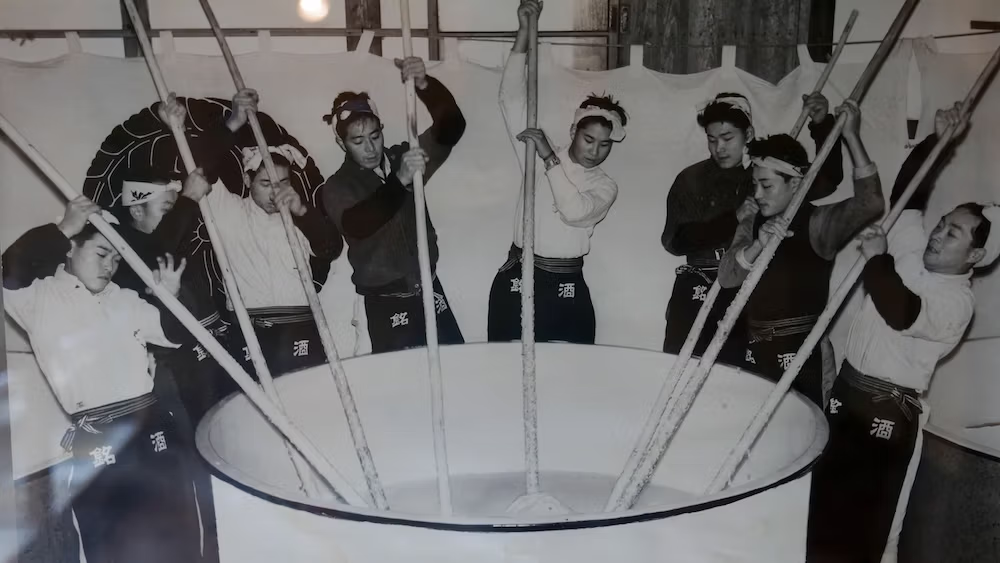
Japan Legal Drinking Age: Real Traveler Questions, Straight-Talk Answers & Nightlife Tips
What is the legal drinking age in Japan right now?
Short answer: 20. In Japan the legal drinking age is 20 years old for every type of alcohol—beer, sake, cocktails, chūhai, wine, whisky, you name it. If you’re 19 or younger, you’re not legally allowed to buy or drink alcohol, even if it would be legal for you back home.
Did lowering the age of adulthood to 18 change the drinking age in Japan?
Nope. Japan did reduce the general age of legal adulthood from 20 to 18, but the rules for drinking (and smoking) were intentionally kept at 20, so nothing changed for alcohol.
Practically, that means an 18- or 19-year-old can sign some contracts or get a credit card, but they still can’t legally order a beer in an izakaya or buy a can of chūhai at the convenience store.
Can my 18- or 19-year-old drink in Japan if it’s legal in our home country?
Unfortunately, no. Even if your home country allows drinking at 18, Japanese law applies while you’re in Japan, and anyone under 20 is considered underage for alcohol.
There’s no “with a parent” loophole in restaurants, and reputable places won’t serve your teen even if you offer to “take responsibility”. It’s much better to assume your 18- or 19-year-old will be joining with soft drinks only and save the alcohol for when they’re 20+.
Is it legal to drink alcohol in public in Japan (parks, streets, trains)?
Mostly, yes. Japan doesn’t have a nationwide open-container ban, so it’s generally legal to drink in public places like streets and parks, and you’ll see people enjoying beers under the cherry blossoms or cans of chūhai on the way to a picnic.
That said, some cities and specific events have their own restrictions—for example, certain busy districts during Halloween or New Year’s may temporarily ban street drinking, and some train companies politely ask passengers not to drink in particular carriages or at certain times.
If you don’t see any signs saying otherwise and people around you are casually drinking, you’re usually fine—just keep the volume down, avoid train rush hours, and always take your trash with you.
Where can I buy alcohol in Japan, and are there any time restrictions?
Convenience stores are your best friend. Chains like 7-Eleven, Lawson, and FamilyMart sell beer, chūhai, sake, wine, and spirits, often 24 hours a day, and you’ll also find alcohol in supermarkets, liquor shops, and in some places, vending machines.
In most of Japan there are no strict nationwide “no sales after X pm” rules like you see in some countries, but a few local governments do cap late-night sales, and alcohol vending machines often have age-verification systems or restricted hours to prevent underage drinking.
If you’re arriving late at night, assume you’ll still be able to grab a drink from a konbini in a big city, but don’t count on that in small rural towns or at sleepy stations just before the last train.
How seriously does Japan enforce ID checks for alcohol?
Pretty seriously. Staff at convenience stores tap a confirmation button on the screen and may ask for ID if you look young, and bars, clubs, and izakaya are very aware that serving minors can cost them huge fines or even their license.
As a foreigner, you’ll often be checked more carefully because your face and ID format are unfamiliar. Carry your passport or residence card when you’re going out for drinks—photos on your phone or paper copies usually aren’t enough if someone decides to be strict.
What happens if I’m caught drunk driving in Japan as a visitor?
Don’t risk it. Japan has one of the strictest drink-driving regimes in the world, with a legal blood-alcohol limit of about 0.03%—much lower than in many countries—and penalties that can include big fines, loss of license, and even prison time for serious cases.
On top of that, passengers and even the person who lent you the car can be punished if they’re seen as enabling drunk driving. If you’re drinking, just rule out driving completely and stick to trains, taxis, or walking.
Are nomihōdai (all-you-can-drink) deals a good idea for travelers?
It depends. Nomihōdai is great value if you’re with friends, want a predictable bill, and can pace yourself—usually you pay a fixed price for 90–120 minutes of unlimited drinks from a set menu, often bundled with food.
Where it goes wrong is when people treat it like a drinking competition. The time limit is strict, last orders come early, and getting absolutely hammered is a quick way to miss your last train or spend the night bonding with a convenience-store toilet instead of your travel companions.
If you try it, eat properly, drink water between rounds, and agree as a group to keep things fun, not messy. Japan’s drinking culture is social, not “prove how much you can chug”.
Is Japan’s drinking culture safe and comfortable for solo travelers?
Mostly, yes. Japan is one of the safer countries in the world for going out alone, and it’s totally normal to see solo customers at counters, small bars, and izakaya.
The main thing to watch is your own alcohol intake and boundaries rather than violent crime. Stick to busy, well-lit areas, keep an eye on your drink, and leave any place where the vibe suddenly feels off—staff and other guests are usually polite, but you never have to stay just to be “nice”.
If you’re nervous, start with a low-key evening at a neighborhood izakaya near your hotel, chat with the staff if they’re not busy, and build up from there.
Can I still join nights out in Japan if I don’t drink alcohol?
Absolutely. Most places are perfectly happy to serve you soft drinks, tea, or non-alcoholic beer while you join the kanpai and enjoy the food and conversation.
In fact, lots of Japanese people drink moderately or skip alcohol altogether on work nights, so you won’t be the only one with oolong tea in your glass. Just order something, join in the toasts, and you’ll still be part of the group without the hangover.
Is it okay to drink at festivals, hanami picnics, and fireworks shows?
Yes, usually. Drinking at seasonal events—cherry-blossom picnics, summer fireworks, autumn festivals—is a big part of how locals socialize, and you’ll see families, colleagues, and groups of friends sharing drinks together in public spaces.
Do check local signs, though, because a few parks and cities have introduced alcohol bans or restrictions during certain events when crowds get out of control. When in doubt, follow what you see locals doing, keep the volume reasonable, and be meticulous about taking all your rubbish home.
What’s the best season to experience Japan’s nightlife and drinking culture?
Honestly, there are fun angles in every season. Spring gives you hanami parties under the cherry blossoms, summer is all about beer gardens and matsuri stalls, autumn means cozy evenings with seasonal food, and winter is peak hot-sake-in-a-steamy-izakaya season.
If I had to pick one, I’d say late March to early April or peak summer festival time are hard to beat for atmosphere—but winter nights in a snug bar while the wind howls outside feel pretty magical too.
Any etiquette mistakes foreigners often make when drinking in Japan?
Plenty, and most of them are easy to avoid once you know the basics. The big one is pouring your own drink first—try to pour for others and let them return the favor, and wait for everyone’s glass before joining the first “kanpai”.
Other common slip-ups include being loud on trains after drinking, leaving a mess in parks or on the street, ignoring no-smoking rules, and getting so drunk that other people have to look after you. Japan really values not disturbing the people around you, so if you keep that front-of-mind, you’ll automatically avoid most faux pas.
How much should I budget for a typical night out drinking in Japan?
Think in ranges. For a simple izakaya evening with 2–3 drinks and a few shared dishes, I usually end up in the ballpark of ¥3,000–¥6,000 per person, depending on the city and how hungry I am.
If you’re hitting fancier cocktail bars or doing nomihōdai with a full course meal, you’re more realistically looking at ¥4,000–¥8,000+. On a shoestring you can keep things to ¥1,000–¥2,000 by grabbing convenience-store drinks and a cheap bowl of ramen, but that’s more of a low-key night than a proper bar-hopping session.
Conclusion: Japan’s Legal Drinking Age
Here are the key takeaways related to Japan’s legal drinking age and age restrictions:
- Legal Drinking Age: Set at 20 years old, consistently applied across all alcoholic beverages.
- Comprehensive Legal Framework: Encompasses national laws like the Liquor Tax Law and Penal Code, as well as local regulations.
- Strict Enforcement: Age verification methods and significant penalties deter underage drinking and ensure compliance.
- Cultural Integration: Laws are deeply intertwined with Japan’s cultural values, emphasizing maturity, responsibility, and social harmony.
- Economic and Social Impact: Regulation influences public health, economic growth, and social outcomes, contributing to a balanced and healthy society.
- Ongoing Debates: Discussions around adjusting the drinking age reflect evolving societal attitudes and global influences.
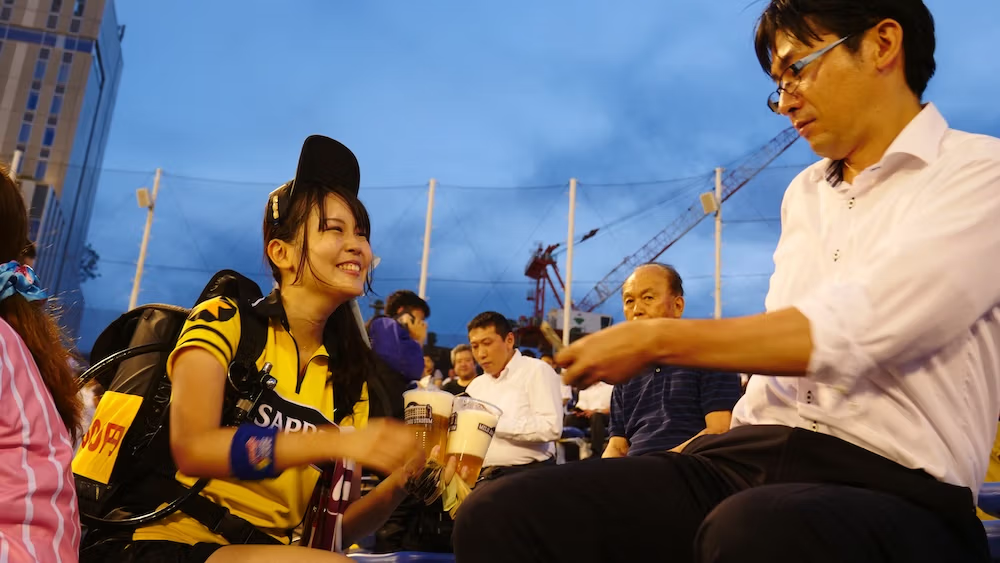
Tips for Enjoying Alcohol in Japan
To make the most of your experience while respecting Japan’s alcohol laws, consider these final tips:
- Always Carry Valid ID: Ensure you have the appropriate identification readily available when planning to consume alcohol.
- Respect Local Customs: Engage in responsible drinking practices, adhering to local norms and etiquettes.
- Stay Informed: Keep yourself updated on any changes in alcohol laws or regulations that might affect your travel experience.
- Be Polite and Courteous: Demonstrating respect and politeness in social drinking settings fosters positive interactions and cultural integration.
- Explore Responsibly: Enjoy Japan’s diverse alcoholic offerings, but always remain mindful of your limits and the cultural context of your consumption.
Japan’s approach to alcohol consumption balances tradition and modernity. Whether you’re sipping sake at a traditional ceremony, enjoying a beer with friends at an izakaya, or visiting as a tourist, respecting and understanding Japan’s alcohol laws enriches your experience.
